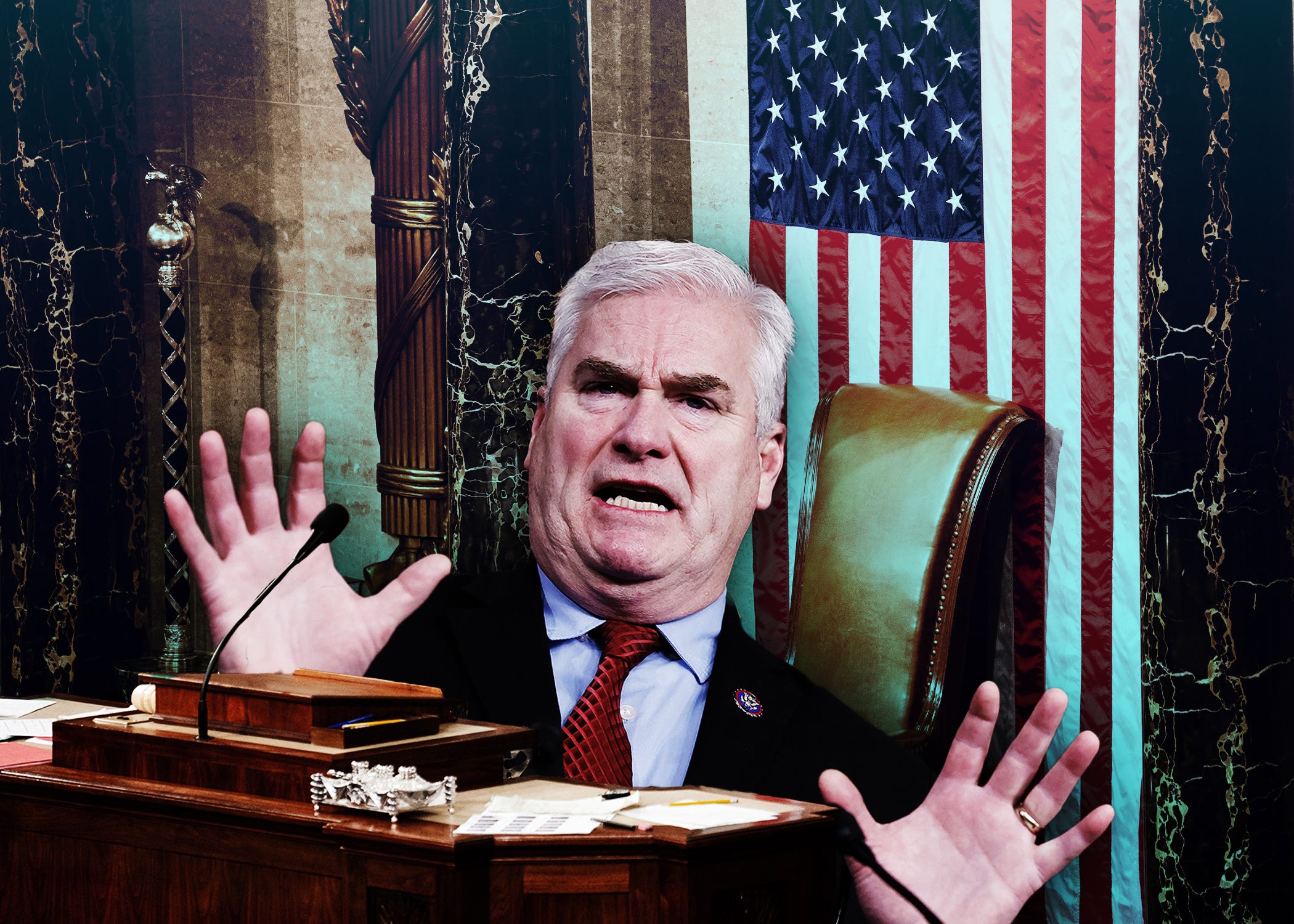Three Long Weeks Without a House SpeakerPlus: Does opposition research even work on House Republicans?Good afternoon and welcome to Press Pass. Today’s edition is free, but for exclusive newsletters, ad-free podcasts, and more, sign up at the link below for Bulwark+. (If you sign up this week, we’ll give you 20 percent off a one-year subscription.) Today we’re examining the Groundhog Day–like state of the speaker race as we prepare to enter a fourth week with one of the top positions in government unfilled. All that and more, below. It has now been three weeks since eight Republicans tipped the numbers in the House to depose Kevin McCarthy from the speakership. Since then the chamber’s majority has stumbled through one failure after another. Today is also 24 days into the 48-day continuing resolution enacted as a stopgap to prevent the government from shutting down. It’s halftime and there’s no starting quarterback. In fact, the team isn’t even in the stadium. They’re all outside arguing about who should call plays. The situation is fluid, changing hour by hour today, but here’s a quick summary of where things stand as this newsletter goes out:
Given the GOP fealty to Trump, Emmer’s ascendancy is likely to prove short-lived, and the other eight contenders may be called back from the wings. This would certainly seem to bode well for Mike Johnson, whom Emmer beat out in the last round of balloting—but things really could tip in any direction at this point. Even before today’s rounds of secret balloting, the knives were out for Emmer. “Allies” of Trump circulated a dossier against Emmer that includes an old DUI arrest. But much of what this dossier, first reported by the Messenger, says about Emmer is boilerplate; DUIs and similar arrests are hardly uncommon among the denizens of Capitol Hill. With just a few seconds googling you can dig up details about a DUI arrest of Matt Gaetz, several arrests and court no-shows by Lauren Boebert, and a dropped marijuana distribution charge for Donalds, another of the top candidates for the gavel. These all occurred prior to their careers in Congress. The same is true of Emmer’s DUIs: They were 1981 and 1991, when he was 20 and 30 respectively, nearly a quarter century before entered Congress. People fall down all the time. It’s admirable when they manage to pick themselves back up again. As long as the situation has been rectified and properly addressed—legally, morally, personally—most old problems shouldn’t be disqualifying for elected office. But you know what should be disqualifying behavior? A fairly recent desire to overthrow a legitimate election. With the exceptions of Emmer and Scott, all nine of the men who last night were vying for the speakership voted against the certification of the 2020 presidential election. And even Emmer and Scott, while they didn’t abandon the will of the voters in the hours after the January 6th attack, did sign on to an amicus brief supporting Texas’s lawsuit attempting to throw out legitimate votes in multiple swing states, something that even the National Review editorial board called “a grotesque violation of federalism and our constitutional scheme, not to mention democracy.” All of the speaker candidates except for Donalds and Sessions signed the amicus brief endorsing the lawsuit. Why didn’t those two sign it? Because they weren’t in Congress at the tail end of 2020.¹ But they both made sure to oppose certification in their first week on the job. In Washington, nobody’s hands are clean. Among the nine contenders standing on Monday night, there are plenty of things that could be significantly more damaging than a DUI in the eyes of their fellow Republicans—though maybe not the rest of the country. Consider the following things that Republicans love to hate:
Whether the wannabe speakers use this information is up to them (sharing a Bulwark link might also be taboo). A big part of the reason this process has dragged on is that House Republicans have shown themselves to be incapable of looking beyond simple disagreements on policy and personal history. Maybe they should ditch the attacks and consider cooperation. Nothing else seems to be working for them. 1 Sessions lost re-election in the 2018 Democratic wave after more than two decades in Congress, but he returned to the House after winning in the 2020 cycle. You’re a free subscriber to Bulwark+. For unfettered access to all our newsletters and ad-free and member-only podcasts, become a paying subscriber. Did you know? You can update your newsletter preferences as often as you like. To update the list of newsletter or alerts you received from The Bulwark, click here. |



